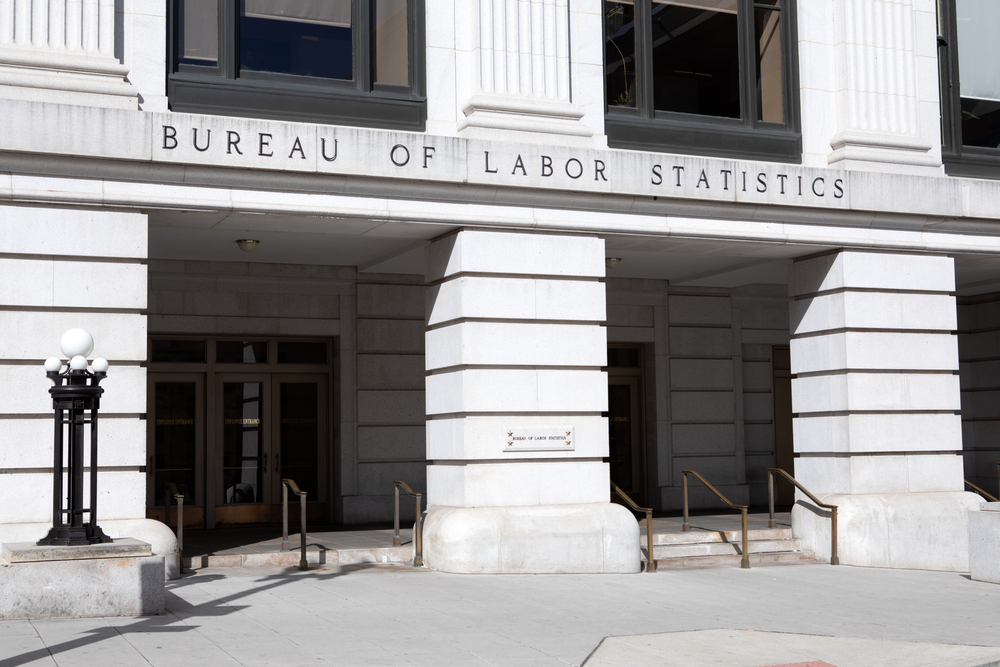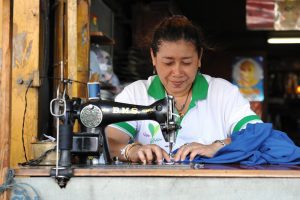Thousands of highly skilled professionals seek employment in the United States in specialty areas each year.
However, they often wonder if the degree they earned in their home country is equivalent to a degree received in the U.S. So, is a degree from another country valid in the United States?
Yes, a large number of employers in the United States will acknowledge one’s international degree.
However, as an overseas candidate, you may be required to take additional steps that domestic applicants are not required to complete.
Table of Contents
Do employers in the United States consider your foreign degree?

One of the primary concerns of companies is that they are uncertain whether your foreign degree is equal to a similar degree earned in the United States.
Employers may lack the knowledge or time to investigate education systems in other countries.
That’s where assessment firms enter the picture.
Who evaluates degrees for employers in the United States?
Employers frequently use a third-party review firm like Scholar to ascertain how comparable your foreign degree is in the United States.
These evaluators are experts in international educational standards, and they will assess your records (such as transcripts and degrees) based on their vast knowledge.
Your employer will receive an assessment report from the evaluation firm. It allows companies to verify that, for instance, your bachelor’s degree from Jamaica is equivalent to a bachelor’s degree from the United States.
What additional steps will you need to take if you want to work in the United States with an international degree?
There may be extra requirements that US companies seek, contingent on one’s field and the state in which you are currently looking.
In some disciplines, like nursing and teaching, you may be compelled to undergo a state exam and gain licensing to practice.
These requirements are usually available on the official website of the relevant examining board.
Hiring managers may also take into account the practical aspects of one international degree experience or other hands-on experience.
Do immigrants with a U.S. degree have a higher chance of getting hired than those with international degrees?

Foreign-educated immigrants were in a greater position to acquire advanced education (doctoral degrees or professional skills) than immigrants who finished their education in America.
Despite this, the Migration Policy Institute (MPI) discovered that in 2006, migrant workers with a U.S. degree were far more likely to get a job than their peers with international qualifications.
Is it true that immigrants with international degrees are underutilized?
As previously said, many immigrants land in the U. S. with a great résumé. Nevertheless, in the employment market, their training and education are widely ignored.
According to the MPI, upwards of 1.3 million university graduate immigrants remain unemployed and underemployed, and four major causes are leading to this underutilization:
- Limited command of the English language
- Lack of familiarity with the job market in the United States
- Employment or academic background in the United States is limited
- Foreign academic certificates are not recognized
In the current economy, how can one interpret foreign credentials?
Employers are increasingly emphasizing the necessity for well-trained and educated staff as educational attainment volume increases in the new economy.
It is consequently critical for job-seeking migrants with educational achievements gained beyond the United States to obtain reliable, trustworthy, and easy-to-understand assessments of their experience or education.
What impact does the international credential issue have on the skills shortage in the United States?

Given current skill shortages in industries like engineering and medical services, effective acknowledgment of immigrant abilities and credentials is especially critical to the American economy.
Industries and companies with huge labor shortfalls might aim to approach those deficiencies by concentrating on several fully skilled immigrant workers that have come to America with international academic credentials.
Such immigrants are usually optimistic that their training and education fulfill national requirements, without awareness of the increasing emphasis as to how certifications and expertise assessments are performed and accepted.
How do qualified immigrants with international degrees find work?
The Migration Policy Institute (MPI) estimates that two million immigrants enter the country each year, with more than half arriving as legal permanent residents.
The country, on the other hand, is doing a bad job of integrating these newcomers into the working population.
Nearly 1.5 million university-educated immigrants are unemployed or working in low-wage occupations, according to the MPI, because they are unable to fully utilize their academic and professional credentials.
How many skilled immigrants join the U.S. workforce?

As per a recent publication from the Bureau of Labor Statistics (BLS), there had been 21.8 million foreign-born employees in the working population aged 25 or above in 2008, representing 16.1% of the overall U.S. workforce.
According to the report, the professions with the greatest proportion of these employees (28.2%) are leadership, specialist, and related trades, pursued by service jobs (23.2 percent).
The data shows that immigrant workers are clustered at the two ends of the employment ladder (low-skilled and high-skilled employment), with several university-educated individuals underemployed in low-skilled positions, particularly in comparison to native-born laborers.
Why is there such a disparity in the hiring of immigrants with international degrees compared to their American counterparts?
Based on the assumption that most immigrants were educated abroad, the two most common explanations for the disparity are a) foreign academic credentials in the United States are either undervalued, not fairly evaluated, or too difficult to assess, and b) employers and immigrant job seekers have limited knowledge and use of foreign credential evaluation services.
1. Individuals with bachelor’s, master’s, professional, or doctoral degrees are considered high-skilled workers.
2. A semi-skilled worker is someone who has a college diploma or an associate’s degree.
3. An individual with a high school diploma or less is referred to as an unskilled worker.
What is the history of Foreign Credential Recognition (FCR) in America?

The Foreign Credential Review Service, which operated under the supervision of the previous Office of Education, had explicit accountability for credential assessments in the early days of credential evaluation following the end of World War I.
By 1967, the agency had only completed 14,000 evaluations, and the service was completely phased out in 1973.
The task of evaluating foreign academic credentials was assigned to the commercial sector, and today, credential evaluations are mostly handled by colleges and universities, as well as by private companies.
Who is in charge of international credential recognition?
In the United States, there is no single authority that governs the recognition of foreign qualifications.
Instead, institutions of higher education, businesses, and state boards of professional licensing are typically considered the three key actors in credential validation.
Some of these agencies perform their reviews, while others use specialized credential evaluation firms.
Is the evaluation of international degrees the same for all U.S. employers?
Specific laws on the recognition of foreign credentials for employment purposes differ by profession.
State boards can often recognize foreign qualifications and issue professional licenses in regulated professions including nursing, architecture, and social work.
Employers often decide whether or not to recognize foreign qualifications in all other professions.
State regulations vary, with each operating system and state licensing board establishing various rules for credential validation.
What does the foreign credentials evaluation process entail?

Private groups that conduct research and analysis of non-U.S. educational achievements and submit suggestions on how a specific certification equates to a comparable certification or set of qualifications in the U.S. education system are credential evaluation services.
They handle the number of foreign training and skills reviews. Numerous credential evaluation services cater to different specific markets in the United States.
Who controls independent credential evaluations the most?
The National Association of Credential Evaluation Services (NACES), which was established in 1987 as a reaction to a shortage of regulation and oversight guidelines, represents many private credential evaluation services.
After passing a thorough assessment process, they encourage companies to join the organization.
While several professional boards undertake in-house assessments as a component of the permit process, the majority of state licensing boards or their national authorities appoint specific assessment providers for credential verification.

What is the most important factor to consider when evaluating international degrees?
The authentication of paperwork and degrees is one of the most significant and time-consuming components of the credential examination.
There are differing standards of rigor for this component due to the lack of laws and the burden of verification.
Verification, on the other hand, can greatly improve immigrants’ chances when seeking employment, schooling, or licensing when done properly.
Hiring managers, education institutions, and licensing boards have more confidence in the authenticity of international credential assessments thanks to stringent verification procedures.
Furthermore, stringent verification procedures ensure that counterfeit documents or documents supplied by diploma mills are identified and rejected.
What are the most recent policy updates on international credentials acceptance in the United States?
Five governors in the United States have endorsed executive actions to help immigrant populations. Illinois, Maryland, Massachusetts, New Jersey, and Washington are the states they represent.
As a first move, each governor has established an oversight board or committee to carry out research into the demands of their state’s migrant communities and suggest suitable immigrant incorporation in aspects such as civil status, medical services, schooling, and job placement.
Up to this point, state commissions have published detailed policy proposals, each of which explicitly addressed the problem of international certification approval, except Washington.

What are the most recent agreements made regarding foreign degrees?
While their suggestions in this area differed slightly, the governors all concurred on the following:
- Develop a special department for foreign-trained professionals as well as develop guidelines for the credential assessment of overseas work and academic diplomas for all regulated professions to develop clear protocols for assessing prior training, abilities, and knowledge.
- Implement mechanisms and online tools to help experts in fulfilling license criteria, including guidance on how to navigate the licensing system and financial support for assessments.
- Encourage public-private alliances, certification agencies, hiring managers, and public entities to work together.

















